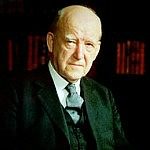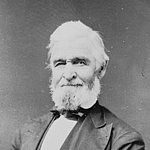Quotes about God-Fatherhood
When certain concepts are ascribed to God, they are thus not used figuratively but in their first and most original sense. God is not “as it were” a father; He is the Father from whom all fatherhood on earth is derived.
Quoted in Donald G. Bloesch, The Battle for the Trinity: The Debate over Inclusive God-Language, Servant, 1985, p. 25.
Five fatherly responsibilities that God has assumed toward His children:
1. God provides for us (Phil. 4:19).
2. God protects (Mt. 10:29-31).
3. God encourages us (Psm. 10:17).
4. God comforts us (2 Cor. 1:3-4).
5. God disciplines us (Heb. 12:10).
Copied from The Gospel for Real Life by Jerry Bridges, © 2002, p. 146. Used by permission of NavPress – www.navpress.com. All rights reserved. Get this book!
God is the archetypal Father; all other fatherhood is a more or less imperfect copy of his perfect fatherhood.
Unless God is our Father, we are orphans. But God’s own Son has become our Older Brother. He comes through His Spirit, with His Father, to live with us. The Holy Spirit dwells in our lives, making us a suitable dwelling place to receive the Father and the Son! As a consequence, by the Spirit we learn that we are not abandoned and unloved, but rather that we are loved by the Father, by the Son, and lovingly cared for by the Holy Spirit (John 14:21).
The first and most obvious reason we call (God) “Father” is because that is what He wants to be called. The first person of the Trinity has many names – Almighty One, Creator, Most High, Holy Holy Holy, the Rock, the Great I Am. But when Jesus came to tear away the veil so we could look directly into the heart of God, He revealed God as “Father.” Jesus used the word “Father” more than any other description or name for God. And He taught us to address God in the same way: “Our Father who art in heaven…” “Father” is God’s self-revealed designation.
Taken from: Biblical Womanhood in the Home by Nancy Leigh DeMoss, Crossway, 2002, p. 49.
It is astounding that God wants us to call Him “Father.” The implications are staggering. Having God as our Father means that He is a living, personal being, and not an impersonal force. It means we can get to know Him. It means we can talk to Him and interact with Him. It means we can relate to Him on a personal and even an intimate basis. I might not know how to relate to an Almighty One, a Most High, or the Great I Am, because I have not met anybody like that. I have no earthly frame of reference to do so. But relating to a father? That’s different.
Taken from: Biblical Womanhood in the Home by Nancy Leigh DeMoss, Crossway, 2002, p. 50.
“Father” is the most significant name of the God of the Bible. It is the name that sets Christianity apart from all the other religions of the world. Other religions invite us to worship their gods, allahs, creators, or metaphysical forces, but Christianity invites us to believe in a Son and to enter into an intimate family relationship with a loving Father. Jesus, the Son of God, came so that we could meet His Father, be adopted into the family of God, and relate to the almighty God of the universe in an intimate, personal, concrete way as sons and daughters (2 Cor. 6:16, 18).
Taken from: Biblical Womanhood in the Home by Nancy Leigh DeMoss, Crossway, 2002, p. 51.
God is Father, and He alone defines what true fatherhood means. How tragic and foolish and how very arrogant of us to shy away from this name because some human males are poor examples of fatherhood or because our culture regards a God named “Father” as oppressive and patriarchal.
Taken from: Biblical Womanhood in the Home by Nancy Leigh DeMoss, Crossway, 2002, p. 52.
We want, in fact, not so much a father in heaven as a grandfather in heaven: a senile benevolence who, as they say, “liked to see young people enjoying themselves” and whose plan for the universe was simply that it might be truly said at the end of each day, “a good time was had by all.”
As Christian people we must learn to appropriate by faith the fact that God is our Father. Christ taught us to pray “Our Father.” This eternal everlasting God has become our Father and the moment we realize that, everything tends to change. He is our Father and He is always caring for us, He loves us with an everlasting love, He so loved us that He sent His only begotten Son into the world and to the Cross to die for our sins. That is our relationship to God and the moment we realize it, it transforms everything.
Spiritual Depression – Its Causes and its Cures, 1965, p. 172, Used by Permission from Elizabeth Catherwood (daughter).
“Abba” is only a little word, and yet contains everything. It is not the mouth but the heart’s affection which speaks like this. Even if I am oppressed with anguish and terror on every side, and seem to be forsaken and utterly cast away from Your presence, yet am I Your child, and You are my Father. For Christ’s sake: I am loved because of the Beloved. So this little word, “Abba,” Father, deeply felt in the heart, surpasses all the eloquence of Demosthenes, Cicero, and the most eloquent speakers that ever lived. This matter is not expressed with words, but with groanings, and these groanings cannot be uttered with any words of eloquence, for no tongue can express them.
If you want to judge how well a person understands Christianity, find out how much he makes of the thought of being God’s child, and having God as his Father. If this is not the thought that prompts and controls his worship and prayers and his whole outlook on life, it means that he does not understand Christianity very well at all. For everything that Christ taught, everything that makes the New Testament new and better than the Old, everything that is distinctively Christian, is summed up in the knowledge of the Fatherhood of God the Father.
Knowing God, 1973 J. I. Packer. Used with permission of InterVarsity Press, P.O. Box 1400, Downers Grove, IL 60515. www.ivpress.com.
Get this book!
If you ask a typical evangelical Christian today what the fatherhood of God means to them, they would probably almost all say, “It means that He loves me, that He will take care of me and guide me and forgive me and take me home to live with Him forever some day.” And this would be true – wonderfully true! … But is it not striking that the most famous of all biblical commands relating to child and father is surely the fifth commandment, Exodus 20:12, "Honor your father and your mother;" and yet very few people today would say that the fatherhood of God implies to them that God is to be honored and revered and venerated and held in sacred respect.
The happiest and holiest children in the world are the children whose fathers succeed in winning both their tender affection and their reverential and loving fear. And they are the children who will come to understand most easily the mystery of the fatherhood of God.
The intellectual source for the notion that your experience of your father determines your view of the heavenly Father is psychodynamic psychology, not the Bible… In an earlier generation, one of the stock human excuses for unbelief was, “The church is full of hypocrites, so I don’t want anything to do with God.” That was more willful and bitter: “Get lost, God.” The new variant is more self-pitying: “I just can’t seem to trust God.” But the net effect is the same. No cry of “Abba, Father” springs from the heart. “My father didn’t love me, so my self-centeredness, self-pity, and unbelief have an underlying reason. Somebody else caused my problems; somebody else must fix them.”… People change when the Holy Spirit brings the love of God to their hearts through the Gospel. Whoever receives the Spirit of adoption as God’s child learns to cry out, “Abba, Father.” People change when they see that they are responsible for what they believe about God. Life experience is no excuse for believing lies; the world and devil don’t excuse the flesh. People change when biblical truth becomes more loud and vivid than previous life experience. People change when they have ears to hear and eyes to see what God tells us about Himself.
Seeing With New Eyes, P&R Publishers, 2003, p. 175-177. Get this book!
Way[s] to grow in the knowledge of God your Father even if your father sinned against you:
1. Identify and take responsibility for the specific lies, false beliefs, desires, expectations, and fears that poison your relationship with God.
2. Find and apply specific truths in the Bible that contend with those lies and cravings.
3. Turn to God for mercy and help, so that the Spirit of truth would renew you, pouring out His love freely.
4. Take responsibility for the specific sins you express toward your father (i.e. bitterness, willfulness, avoidance, blame-shifting, brooding, fears, people-pleasing, slander, lying, self-pity, etc.).
5. Turn to God for mercy and help, that the Spirit of love would enable you to bear his fruit thankfully.
6. Identify the specific sins committed against you… Identifying the wrongs helps you know what to forgive. It also makes it clear what God calls you to tackle constructively.
7. Ponder the good things your father did for you.
8. The Father gives the power to return good for evil rather than evil for evil… Come up with a plan for specific changes (i.e. forgiving, giving love, seeking forgiveness, forbearing, confronting constructively, refocusing your attention, pouring your energies into God’s calling, etc.).
9. Find wise believers to pray for you, hold you accountable.
Excerpted from: Seeing With New Eyes, P&R Publishers, 2003, p. 180-181. Get this book!
America has now embarked on a foolhardy experiment to discover what happens to a culture in which nearly half the children do not live with their fathers. One result is that many people do not know how to call God “Father,” nor do they want to.
In almost every prayer that Jesus utters in the New Testament, He addresses God as Father… This represents a radical departure from Jewish custom and tradition. Though Jewish people were given a lengthy number of appropriate titles for God in personal prayer, significantly absent from the approved list was the title “Father”… The serious reaction against Jesus by His contemporaries indicated that they heard in His addressing God as Father a blasphemous utterance by which Jesus was presuming, by this term of address, a certain equality that He enjoyed with the Father.
Did not [Jesus] say, "You are of your father the devil, for his works you do?" Why, then, should you mock God by saying, "Our Father which art in heaven." For how can He be your Father? Have you two Fathers? And if He be a Father, where is His honor? Where is His love? You neither honor nor love Him, and yet you presumptuously and blasphemously approach Him, and say, "Our Father," when your heart is attached still to sin, and your life is opposed to His law, and you therefore prove yourself to be an heir of wrath, and not a child of grace!
I have never been able to see that creation necessarily implies fatherhood. I believe God has made many things that are not His children. Did He not make the heavens and the earth, the sea and the fullness thereof and are they His children? You say these are not rational and intelligent beings; but He made the angels, who stand in an eminently high and holy position, are they His children? "Unto which of the angels said He at any time, you are My son?" I do not find, as a rule, that angels are called the children of God; and I must demur to the idea that mere creation brings God necessarily into the relationship of a Father.
No man hath a right to claim God as his Father, unless he feeleth in his soul, and believeth, solemnly, through the faith of God’s election, that he has been adopted into the one family of which is in heaven and earth, and that he has been regenerated or born again.
It is not for me to rise up and go in rebellion against His wishes. If He be a father, let me note His commands, and let me reverentially obey. If He has said "Do this," let me do it, not because I dread Him, but because I love Him. And if He forbids me to do anything, let me avoid it.
Sonship is a thing which all the infirmities of our flesh, and all the sins into which we are hurried by temptation, can never violate or weaken.
It is a sweet compound of faith that knows God to be my Father, love that loves Him as my Father, joy that rejoices in Him as my Father, fear that trembles to disobey Him because he is my Father and a confident affection and trustfulness that relies upon Him, and casts itself wholly upon Him, because it knows by the infallible witness of the Holy Spirit, that Jehovah, the God of earth and heaven, is the Father of my heart.
When I regarded God as a tyrant, I thought my sin a trifle, but when I knew Him to be my Father, then I mourned that I could ever have kicked against Him.
I am taking my children with me, and I notice that it is not difficult for me to remember that the little ones need breakfast in the morning, dinner at midday, and something before they go to bed at night. Indeed I could not forget it. And I find it impossible to suppose that our heavenly Father is less tender or mindful than I… I do not believe that our heavenly Father will ever forget His children. I am [a] very poor father, but it is not my habit to forget my children. God is a very, very good Father. It is not His habit to forget His children.
Taken From: Marshall Broomhall, The Man Who Believed God: The Story of Hudson Taylor, Moody, 1929, p. 150.
Many who say “Our Father” on Sunday spend the rest of the week acting like orphans.
The mere inclination to call God “Father”, apart from a sense of my own deep sinfulness, is not the work of the Spirit of God. Note this carefully. It is extremely important. Nothing is easier than to teach men to address God as “Father”. But the Spirit’s work is different in this way: the Spirit teaches men to call God “Father”, who would otherwise fear to do so because of what they know of their own sin.
Christian: Take Heart! By Permission of the Banner of Truth Trust, Carlisle, PA. 1987, p. 27.
We may feel God’s hand as a Father upon us when He strikes us as well as when He strokes us.
A Puritan Golden Treasury, compiled by I.D.E. Thomas, by permission of Banner of Truth, Carlisle, PA. 2000, p. 41.
















